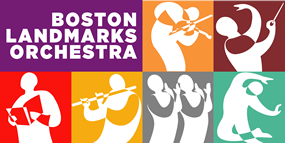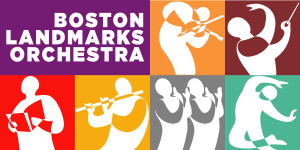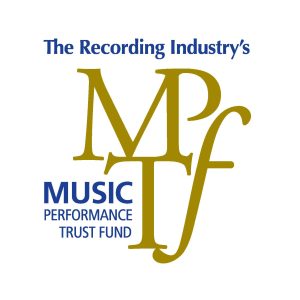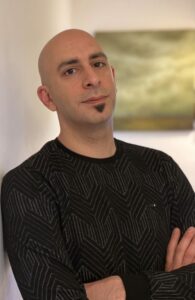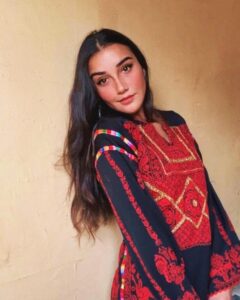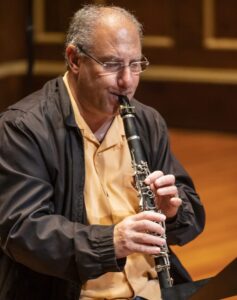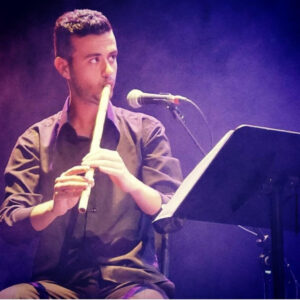by Christopher Wilkins
The English word “kismet”—meaning one’s lot in life—stems from the Arabic word for “portion” or “lot,” qismat. In Islam, the word indicates the will of Allah. On Broadway, it served as the title of a hit show that won the Tony Award for Best Musical in 1954. The show’s story takes place in a fictional Baghdad, a setting borrowed from One Thousand and One Nights. Also known as The Arabian Nights, these folktales were compiled in the Arabic language over many centuries.
The songs of Kismet are also mostly borrowed. They began as music by Russian composer Alexander Borodin: his First and Second Symphonies, First and Second String Quartets, the symphonic poem In the Steppes of Central Asia, the Petite Suite for solo piano, and the opera Prince Igor. The second act ballet music of Prince Igor—known as the Polovstsian Dances—accompanies an entertainment performed by slaves in the camp of Khan Konchak, leader of the Polvtsians, who have been victorious in battle over Igor, prince of the Kievan Rus’ people.
Borodin made no attempt to include in his opera any aspects of historic Polovtsian (Cuman) culture: its early-Turkic language, for example, or aesthetic elements of that highly sophisticated nomadic civilization. Rather he set up an opposition between music that sounded Russian to represent Igor and his followers, and music that sounded exotic to portray Konchak and the Polovtsians.
We perform two “core chestnuts” tonight: the Polovtsian Dances and Rimsky-Korsakov’s Sheherazade. Both are rightly beloved and widely influential. Sheherazade in particular had an enormous impact on the next generation of composers throughout the Western world, especially for its innovations in orchestration. Yet both are also problematic works in the way they portray the “orient.” While based on accepted history, legends, and folk tales of non-Russian cultures, works of this kind normalized the Western view of the Near East and Arabic cultures as “other”—alien, immoral, overly sensual, and violent. They are part of a group of works in the classical music canon that draw upon hurtful and inaccurate portrayals of a generalized “Orient.”
For authentic context-setting, we also perform two works allowing composers from that part of the world to speak for themselves. The first is by Gity Razaz, a 38-year-old Iranian American, who has written for opera, ballet, and chamber ensembles, as well as several multimedia and electroacoustic works. Orchestras throughout the world frequently perform her many orchestral pieces. Her six-minute tone poem, Mother, is a meditation on the beauty and state of Mother Earth. The BBC Symphony Orchestra commissioned the work to open the “Last Night of the Proms” in 2021 at London’s Royal Albert Hall.
The composer writes:
The short orchestral piece, Mother, is an ecstatic tribute to nature’s elegance and eternal resilience. Right now, however, our home to life as we know it is frequently in distress from the impact of modern society. Due to climate change, we’ve witnessed wildfires from Alaska to Australia, droughts rage through California, and each summer, water becomes more scarce in the Middle East.
Mother is my attempt to showcase the fearsome majesty of the natural world, alongside its awe-inspiring beauty. The piece vibrates with constant waves of energy depicting nature’s unstoppable will to survive and propel life. Two yearning melodic themes churn and soar amidst various pulsating textures, creating a dramatic trajectory. The themes develop and transform throughout the piece culminating in a gripping finale.
As we begin to take cautious steps away from the pandemic, Mother is meant as a reminder of our delicate, precarious dance with the natural world, and at its essence, a celebration of life.
We are thrilled to perform music by Akram Haddad tonight. Akram has arranged Arabic Singers Medley for female vocalist—in this case soloist Mona Miari—and orchestra, plus several musicians performing on traditional instruments, including tar, oud, and darbuka. Mona sings in Arabic, a first for us. As always, the opportunity to learn and to stretch our musical horizons is welcome and wonderful. Such experiences are part of what I love best about the mission of the Boston Landmarks Orchestra.
Akram Haddad kindly took the time to answer several questions from me about his career, and the many layers of Arabic Singers Medley. Here is that discussion:
First, tell us about the songs themselves. What cultures do they come from, and why did you choose them?
The Arabic Singers Medley is made up of five songs from five renowned female singers from the Arab world. Each song reflects the unique cultural and musical heritage of its respective country, and together, they showcase the richness and diversity of Arabic music.
- Asmahan – “Ya Habibi Taala” (“My love, come”) [Syria]: Asmahan, a Syrian singer who rose to fame in Egypt, performed this classic song. At the time, Egypt was a cultural hub for many artists from the Arab world, providing a fertile ground for musical innovation and collaboration. “Ya Habibi Taala” is a heartfelt plea to a beloved, showcasing Asmahan’s ethereal voice and the rich musical traditions of both Syria and Egypt. The music for “Ya Habibi Taala” was composed by the renowned Egyptian composer Farid al-Atrash, who was also Asmahan’s brother. The lyrics were written by Ahmed Rami, a famous Egyptian poet and lyricist.
- Oum Kalthoum – “Wasafouli el Sabr” (“They described patience to me”)* [Egypt]: Known as the “Star of the East,” Oum Kalthoum’s music has left an indelible mark on Arabic music. “Wasafouli el Sabr” speaks of patience and longing, themes that resonate deeply with her audience. Her powerful voice and emotive delivery highlight the depth and complexity of Egyptian music. The composer is the renowned Egyptian, Riyad Al Sunbati. The lyrics for the song were written by the Egyptian poet and lyricist Bayram al-Tunisi. Riyad Al Sunbati was one of Oum Kalthoum’s most frequent collaborators, contributing to many of her iconic songs and helping to shape the golden age of Arabic music.
*This phrase is often used in Arabic poetry and songs, implying a deep or poetic description of patience, usually in the context of enduring something difficult.
- Warda – “Batwannes Beek” (“I find comfort in your company”) [Algeria]: Although Warda was Algerian, she also sang extensively in Egypt, blending the musical traditions of both countries. “Batwannes Beek” is a romantic ballad that captures the essence of love and companionship. Warda’s ability to connect with audiences across the Arab world is a testament to her versatility and talent. The song was composed by the renowned Egyptian composer Salah El Sharnouby. The lyrics for the song were written by Omar Bati.
- Fairouz – “Habaytak” (“I have loved you”) [Lebanon]: Fairouz is a beloved icon in Lebanese music, and “Habaytak” is a beautiful expression of love and nostalgia. Her voice, coupled with poetic and melodic traditions, embodies the spirit of Lebanese music and its deep emotional resonance. The song “Habaytak Bisayf” was originally composed by the Rahbani Brothers, Assi and Mansour Rahbani, who were Fairouz’s husband and brother-in-law, respectively. The Rahbani Brothers were legendary figures in Lebanese and Arabic music, and they composed many of Fairouz’s most iconic songs. Ziad Rahbani, Fairouz’s son, later rearranged and reinterpreted “Habaytak Bisayf,” giving it a fresh sound while preserving the essence of the original composition. The song, in its original form, remains a classic example of the Rahbani Brothers’ contribution to the rich tapestry of Arabic music.
- Majeda al Rumi – “Esma Albe” (“Listen to my heart”) [Lebanon]: This song by Majeda al Rumi is a powerful and emotive piece that explores themes of love and heartache. Her commanding vocal presence and rich musical arrangements highlight the sophistication and emotional depth of Lebanese music. “Esma Albe,” a popular song by the Lebanese singer Majida al-Roumi, was composed by Ihsan Al-Mounzer, a well-known Lebanese composer and arranger. The lyrics for the song were written by Nizar Francis, a prominent Lebanese poet and lyricist.
These songs were chosen for their cultural significance and their ability to convey deep emotions and stories that resonate across generations. Each singer brings a unique voice and perspective, making this medley a celebration of the diversity and richness of Arabic music.
We have a remarkable singer as soloist, Mona Miari. She has a deep interest in Arabic, Palestinian, and Levantine culture. Tell us why you recommended her for your work.
I recommended Mona Miari for this project due to her exceptional talent and profound connection to Arabic, Palestinian, and Levantine culture. Having grown up in the same region and listening to the same kind of music, Mona possesses a deep understanding and passion for these traditions, making her an ideal interpreter of the Arabic Singers Medley.
Mona’s vocal versatility and emotional depth enable her to convey the intricate nuances of each song, bringing both authenticity and soul to the performance. Her dedication to preserving and celebrating her cultural heritage is evident in her work, making her a perfect fit for the medley. With Mona as our soloist, I am confident that the music will resonate deeply with audiences, bridging cultural gaps and highlighting the universal themes of love, longing, and resilience inherent in these timeless songs.
In your orchestration, you’ve included several traditional Arabic instruments along with the voice. In fact, although this work has been performed before, you created a new version for this concert in order to incorporate these specific musicians. What instruments do you include, and what are the special challenges of integrating them into a symphony orchestra?
I have always had a profound interest in traditional Arabic melodies and rhythms. As a composer, these elements are central to my compositions. As a pianist, I constantly seek ways to accompany songs that seamlessly transition between different Maqamat (see below) and rhythms. I derive immense satisfaction from reharmonizing and rearranging these timeless songs, which allows me to reinterpret their stories from a fresh perspective and breathe new life into the music while honoring their original essence. In an orchestral context, I took the opportunity to color and shape these songs in unique ways, blending traditional elements with modern orchestration to create a rich, multifaceted musical experience.
For this concert, I have included the following traditional Arabic instruments:
- Oud: A pear-shaped stringed instrument central to Arabic music, adding richness and depth with its deep, resonant tones.
- Iranian Tar: A long-necked plucked string instrument known for its distinctive timbre and expressive capabilities.
- Nay: A traditional reed flute that contributes a breathy, soulful quality to the music.
- Traditional Percussion: Instruments such as the Darbuka, Riq and Bandeer which provide essential rhythmic complexity, drive and sound.
Each musician brings a unique flavor to the songs with their interpretation of the melodies, which is exactly what I seek in these performances. Together with the singer, they create heterophony, a rich texture where multiple versions of the melody intertwine. This blending can only be achieved beautifully when the players specialize in playing by ear and incorporating their own nuances along with those of the singer.
One aspect essential to understanding the structure and aesthetic of Arabic music is the term “Maqam” (plural: “Maqamat”). It refers to the system of melodic modes used in traditional Arabic music. Each Maqam provides a set of rules for constructing a melody, including specific scale patterns, characteristic motifs, and emotional expressions. They provide a framework within which musicians can creatively explore and express their artistry. Maqamat are not just scales but encompass a rich tapestry of musical traditions that guide the improvisation and composition of Arabic music.
Additionally, there is a part in the piece that employs a specific Maqam (modal system) that includes quarter tones. These quarter tones are very specific and must be played in a certain way that only a musician familiar with this system can achieve. This requires a nuanced understanding of the microtonal intervals and their expressive capabilities, adding an authentic layer to the performance.
Integrating traditional Arabic instruments into a symphony orchestra presents unique challenges, particularly in range and pitch integration. These instruments often have different pitch ranges and tuning systems compared to Western instruments. For instance, the Nay, Tar, and Oud have distinct intonation tendencies that must be balanced with the fixed pitches of Western orchestral instruments.
Rhythmic complexity is another challenge, as traditional Arabic percussion instruments bring intricate rhythms vital to the music’s character. In my orchestration, I use the orchestra to mimic these rhythms, adding significant drive to the performance. Additionally, achieving a seamless blend of heterophonic texture within a symphonic setting requires me to select the orchestral colors and sounds carefully while preserving the essence and originality of the traditional melodies and rhythms. This approach ensures that the rich textures and intricate details of Arabic music are preserved and beautifully integrated into the symphonic context, creating a unique and captivating performance both for audiences who are familiar with these songs and those experiencing them for the first time.
Akram, you now live in Boston with your wife and son. And you serve on the faculties of both the Berklee College of Music and the New England Conservatory of Music. What has life in Boston been like for you, and what are your dreams for your future career?
Boston has been an incredibly enriching environment for me, both personally and professionally. The city has offered me the freedom to fully express myself and connect with others who share a deep passion for music. My journey in Boston began as a student at the New England Conservatory, where I earned a Graduate Diploma in Contemporary Improvisation and was honored with the Peter Lyman Row Global Musicianship Award in 2022.
Relocating to Boston with my family presented significant challenges, especially in leaving behind our loved ones. However, it was a necessary step in pursuing my professional dreams. I have always believed in the power of music as a universal language that transcends cultural and geographical boundaries. This belief has been instrumental in helping me connect with students and colleagues from diverse backgrounds. The appreciation and opportunities I’ve found in Boston have allowed me to collaborate and compose across various musical genres—something I’d been passionate about but hadn’t explored fully before coming to the U.S.
During my time here, I’ve expanded my portfolio to include music for feature films, television, video games, theater, choir, and other media. Notably, I orchestrated the music for the video game Assassin’s Creed Mirage by Ubisoft Bordeaux, leading the New York Arabic Orchestra and recording at the prestigious Powerstation Studios in NYC, as featured in an article by The Guardian. I also composed music for the feature film Yes Repeat No by director Michael Dahan and created the album The Middle East for Universal Studios Library Music in 2022. Additionally, my arrangement “Arabic Medley” was performed at the Dubai Expo 2020 by the world-renowned Firdaus Orchestra.
Serving on the faculties of both Berklee College of Music and the New England Conservatory of Music has been a privilege, enabling me to contribute to Boston’s vibrant and diverse musical community in meaningful ways. Over the past two years, I’ve had the opportunity to teach and develop a variety of courses and ensembles. At the New England Conservatory, I’ve been actively involved in the Contemporary Improvisation department, leading courses such as “Contemporary Arabic Music Traditions” and the World Music Ensemble. This fall, I’m excited to introduce a new interdisciplinary course, “Orchestrating and Arranging using DAW (Digital Audio Workstation).”
At Berklee, I have taught courses in “Composition and Orchestration for Media” within the Screen Scoring department, as well as “Scoring Tech Blended” and “Scoring Technology.” I am eager to continue with these courses in the upcoming fall semester.
Boston has truly been a place where I can thrive creatively, and I look forward to continuing my growth as an educator, composer, and collaborator in this dynamic city.
For more information, please visit https://www.akramhaddad.com/
Rimsky-Korsakov’s symphonic suite Sheherazade was inspired by One Thousand and One Nights. It is not an exact setting of any of the stories, but an expression of their character, imagery, and mood generally. In his autobiography, Rimsky wrote, “All I desired was that the listener should have the impression that it is beyond any doubt an Oriental narrative of numerous and varied fairy-tale wonders, and not merely four pieces played one after another and composed on the basis of themes common to all four movements.”
As renowned as One Thousand and One Nights is, the frame story that begins and ends the collection is its most famous aspect. At the beginning of the musical score, Rimsky summarizes the frame story as follows:
“The Sultan Schariar, convinced that all women are false and faithless, vowed to put to death each of his wives after the first nuptial night. But the Sultana Sheherazade saved her life by entertaining her lord with fascinating tales, told one after another for a thousand and one nights. The Sultan, consumed with curiosity, postponed from day to day the execution of his wife, and finally repudiated his bloody vow entirely.”
In each of the four movements of Sheherazade, the solo violin—performed by concertmaster Greg Vitale—represents Sheherazade, telling tales to the Sultan. She accompanies herself on the oud—a sound supplied by harpist Hyunjung Choi. The elegance and variety of her music complements her nobility and intelligence. The ornate curling motion of the violin line—a style known as “arabesque”—identifies in a generic way her Arabic heritage.
The opening bars of the first movement portray the Sultan in a state of rage, “his face a thundercloud,” the folklorist tells us. This four-bar melody is the work’s principal recurring theme. Its basic contour is consistent over the course of the entire symphonic suite, but its mood changes constantly. Against the extravagant power of the principal theme come five understated chords, sweetly suspended in time. They represent the spell that Sheherazade casts over the Sultan with her storytelling. They are also Rimsky’s homage to the magical chords that open Mendelssohn’s A Midsummer Night’s Dream. The principal theme now transforms into a series of undulations and swells to accompany the voyages of Sinbad the Sailor. The music resembles a barcarolle, a musical type that originated in Venice to mimic the rocking of a boat.
The second movement presents another world entirely. The Kalendar Prince—in reality a beggar, as Sheherazade tells it—travelled in lavish fashion from town to town. Everywhere he went, people bowed, addressing him as “your majesty.” The constant change of scene in the narrative is reflected in constant shifts of color in the music. The orchestration is vibrant and varied. Extended solos sing out from every corner of the orchestra.
The third movement is music for a love story. Its sweetly nostalgic theme constantly extends itself with new embellishments, like two lovers wishing to prolong the moment. In the middle section, the rhythms of a distant drum signal that a procession is approaching. Rimsky may have been thinking of the tale of a young man who waits every day for the sound of the advancing cortège of the princess and her court. While the snare drum marks time, the cymbals, tambourine, and triangle simulate the jangling of jewelry hanging about the princess’s embroidered silks.
The final movement illustrates two of the famous Voyages of Sinbad. In one, two lovers find each other at a festival in Baghdad after years of searching. In another, Sinbad’s ship is dashed to pieces on the rocks. Under great strain from the threat of the storm, he manages to build a raft, eventually floating to the bejeweled city of Serendib in present-day Sri Lanka. The brilliance and clarity with which Rimsky portrays life on the high seas came from personal experience, having served all over the world as an officer in the Russian navy.
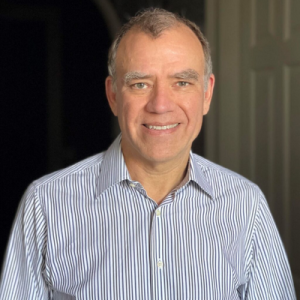 CHRISTOPHER WILKINS was appointed Music Director of the Boston Landmarks Orchestra in the spring of 2011. Since then, he has expanded the orchestra’s mission of making great music accessible to the whole community. He has also helped develop the orchestra’s Breaking Down Barriers initiative, making accessibility a priority in all aspects of the orchestra’s activities.
CHRISTOPHER WILKINS was appointed Music Director of the Boston Landmarks Orchestra in the spring of 2011. Since then, he has expanded the orchestra’s mission of making great music accessible to the whole community. He has also helped develop the orchestra’s Breaking Down Barriers initiative, making accessibility a priority in all aspects of the orchestra’s activities.